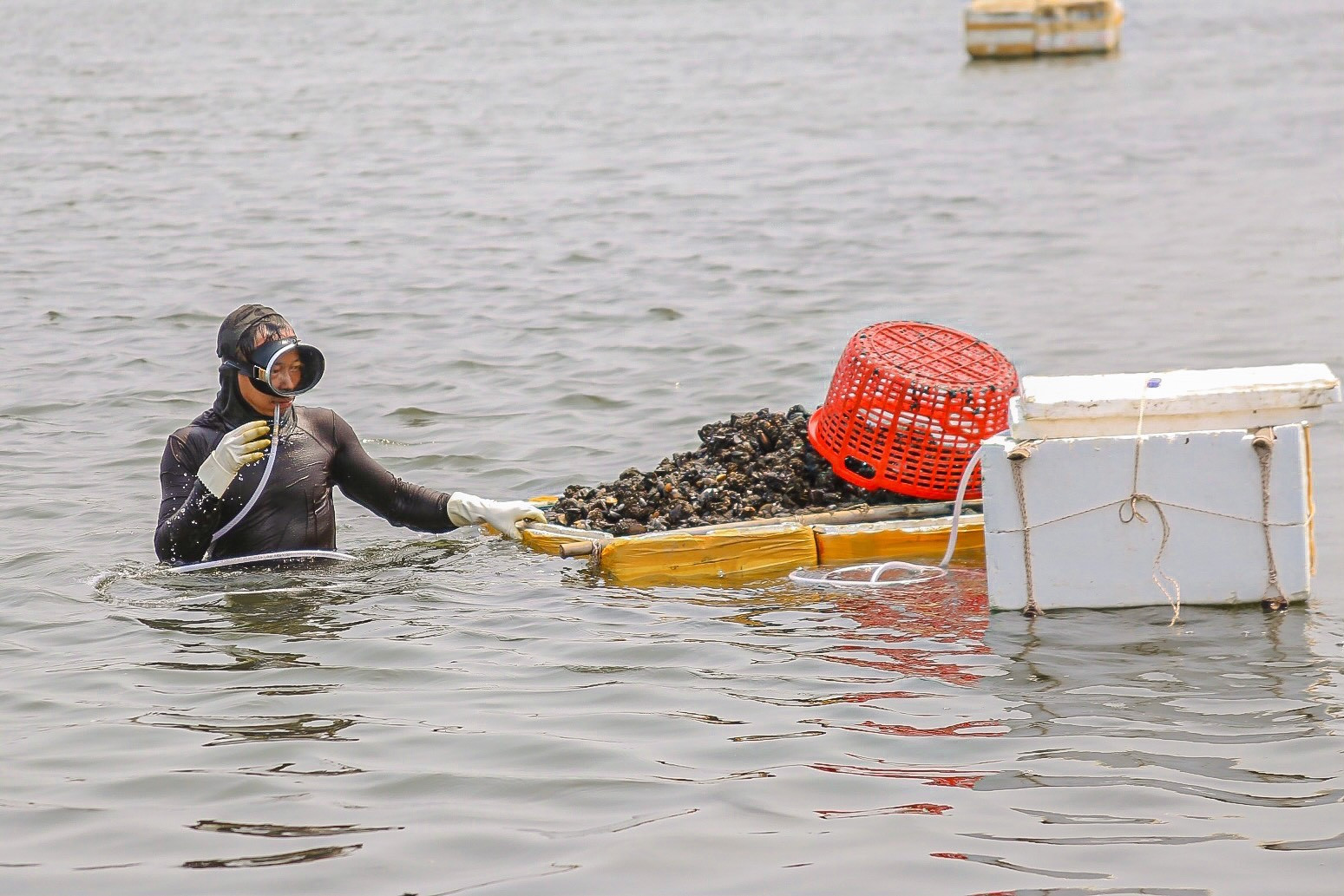
The mussels, which are blue bivalve molluscs, finger-sized, and bound together in clumps, live in fresh water and brackish estuaries.
Bom bop is collected by petty merchants who resell them to lobster breeders. The bom bop is used for feed for lobsters and sells at VND350,000 per 100 kilograms, and in high season, VND250,000.
Nguyen Cuong, a man from Son Tra district in Da Nang, said now is the time for people to catch bom bop to earn extra money. Only one morning is needed to bring income of hundreds of thousand of dong.
Trinh Ngoc Hung, 44, from Son Tra district, said he can catch 200-300 kilograms of bom bop each morning. On auspicious days, it can be up to 500-600 kilograms, which brings VND1-1.5 million.
In the past, people did not catch bom bop, but in recent years, merchants want to buy the mussel to use it as feed for lobsters. Sometimes bom bop sells for VND400,000-500,000 per 100 kilograms.
Hung, whose main job is a construction worker, spends time catching bom bop during harvesting season because the income is even higher than his job.
The catchers, who say the job has a dangerous side, have to wear gloves and socks, and carry styrofoam boxes and plastic baskets to hold the mussels. Wherever they dive, they drag the styrofoam box. In deep waters, fishermen must use oxygen tanks and specialized diving suits.
They usually finish catching bom bop at 12 pm and bring the styrofoam boxes ashore and use plastic baskets to shake the mud off. They sell bom bop to petty merchants right on the riverside.
Hung said they can earn millions of dong, but have to soak themselves in water for many hours under the scorching sun. And danger lurks underwater. One may lose his life in case of a serious accident. Catchers also face risks such as groping or stepping on broken glass and sharp objects.
“Though I wear two pairs of socks, after every working shift, the socks are torn to shreds and must be replaced,” Hung said.
Dieu Thuy